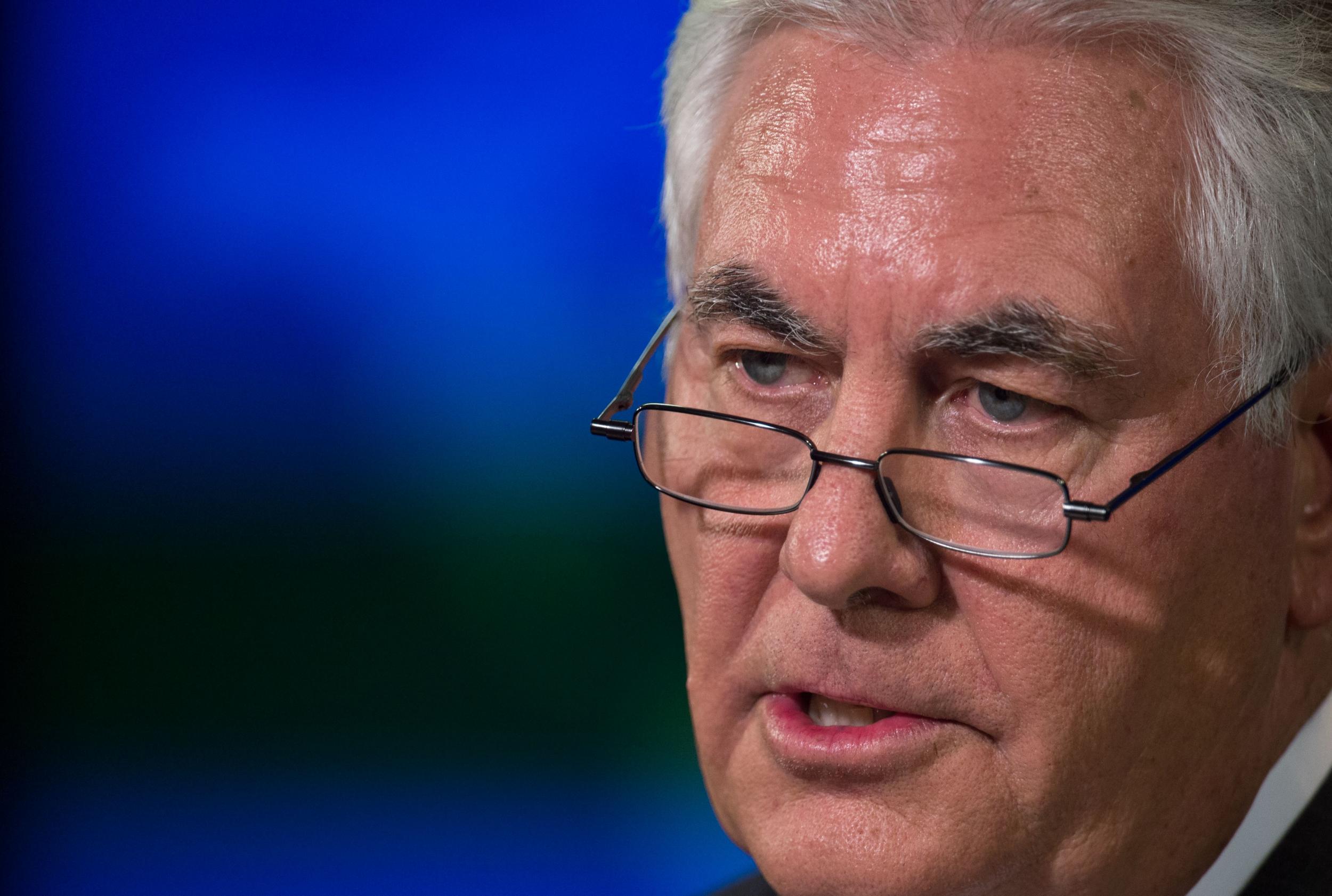Trump administration has failed to fill almost a third of all senior posts in State Department
'Those gaps will be exploited by our opponents,' Senator Jack Reed says

Your support helps us to tell the story
From reproductive rights to climate change to Big Tech, The Independent is on the ground when the story is developing. Whether it's investigating the financials of Elon Musk's pro-Trump PAC or producing our latest documentary, 'The A Word', which shines a light on the American women fighting for reproductive rights, we know how important it is to parse out the facts from the messaging.
At such a critical moment in US history, we need reporters on the ground. Your donation allows us to keep sending journalists to speak to both sides of the story.
The Independent is trusted by Americans across the entire political spectrum. And unlike many other quality news outlets, we choose not to lock Americans out of our reporting and analysis with paywalls. We believe quality journalism should be available to everyone, paid for by those who can afford it.
Your support makes all the difference.The State Department is on its way to a staffing crisis, critics claim.
Of the 113 positions listed on the State Department website - including deputy secretaries, assistant secretaries, undersecretaries and other senior officials - only 36 have been filled. Twenty-nine positions are occupied by holdovers from the Obama administration, and 48 positions are vacant.
“The secretary of state ... cannot possibly run the department operationally himself,” R Nicholas Burns, a retired career diplomat, recently told the New York Times. “He has to delegate, and that’s what’s missing now.”
RC Hammond, a spokesman for Secretary of State Rex Tillerson, said the Secretary of State has slowed hiring to focus on reforming the department and cutting down on bureaucracy.
“What we are discovering is that there are a series of problems that have been neglected and ignored,” Mr Hammond told the Times. “And they are causing larger problems that can be fixed if things are vetted properly and installed.”
While many would agree that the department needs streamlining, some say this focus on reorganisation has kept the department from focusing on its core mission: diplomacy.
Four of the Department’s core offices currently have no appointed leader. (There is, for example, no undersecretary for security, democracy and human rights.) Employees have been banned from transferring departments, or taking reassignments. Policy-making is confined to a small, trusted group of advisors – advisors who officials told Politico are extremely overworked.
TheTimes reports that other countries have taken note. Foreign leaders have started reaching out directly to Mr Tillerson’s advisers, and even members of the White House, instead of their assigned ambassadors – likely because ambassadors to 71 countries have yet to be assigned.
Democratic Senator Jack Reed said these staffing holes will ultimately have a negative impact on US foreign policy.
"Overseas, there’s basically unity of effort between the Defence Department and the State Department, and other agencies,” he told The Independent. "Those gaps will be exploited by our opponents.”
On the slew of unfilled government positions as a whole, he said: “I think [the unfilled posts] will eventually and inevitably have a serious impact on the ability to implement policy, particularly in a time of crisis when you don’t have the people to step up and do the job.”
The staffing crisis started in January, when Donald Trump unceremoniously fired four top State Department officials without lining up replacements. Seven months later, these position still have not been filled.
The Department has also issued a hiring freeze, which briefly kept recipients of federal diversity fellowships from getting the jobs they were promised. (The State Department eventually backtracked and allowed them to apply for the positions.) Mr Tillerson has also proposed a 31 per cent cut to the department’s budget and an 8 per cent staff cut.
Mr Tillerson has made it clear from the start that he wants to change the status quo at the State Department, telling employees in his introductory speech that his tenure “may entail making changes to how things are traditionally done in this department”.
“We cannot sustain ineffective traditions over optimal outcomes,” he said in February. “I will gather information on what processes should be reformed and do my part to make sure that we are productive and efficient way possible."
To that end, Mr Tillerson has hired two consulting companies to oversee a department-wide organisation. He has sent out surveys to employees, and created five committees to analyse different aspects of the department.
But eventually, critics say, he will have to start staffing his department.
“This is how diplomacy dies,” Max Bergmann, a senior fellow at the Centre for American Progress, wrote in Politico. “Not with a bang, but with a whimper. With empty offices on a midweek afternoon.”
Join our commenting forum
Join thought-provoking conversations, follow other Independent readers and see their replies
Comments